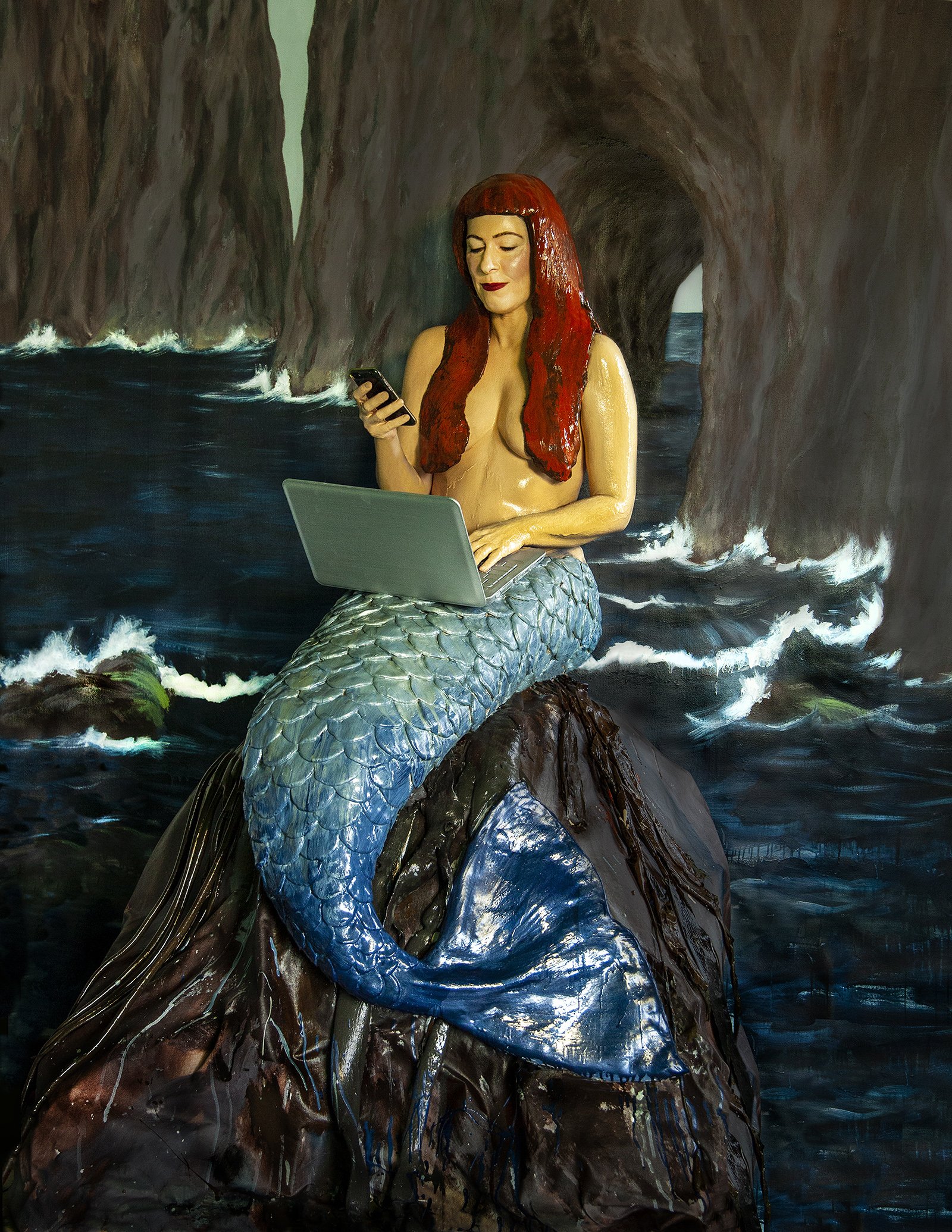A Terrible Fish
The Terrible Fish (Megan Dunn, after John W Waterhouse) \, Archival pigment print, Edition 1/1. 50cm x 64cm
Mirror
I am silver and exact. I have no preconceptions.
Whatever you see I swallow immediately
Just as it is, unmisted by love or dislike.
I am not cruel, only truthful---
The eye of a little god, four-cornered.
Most of the time I meditate on the opposite wall.
It is pink, with speckles. I have looked at it so long
I think it is a part of my heart. But it flickers.
Faces and darkness separate us over and over.
Now I am a lake. A woman bends over me,
Searching my reaches for what she really is.
Then she turns to those liars, the candles or the moon.
I see her back, and reflect it faithfully.
She rewards me with tears and an agitation of hands.
I am important to her. She comes and goes.
Each morning it is her face that replaces the darkness.
In me she has drowned a young girl, and in me an old woman
Rises toward her day after day, like a terrible fish.
Sylvia Plath
In Sylvia Plath’s poem The Mirror an aging woman’s reflection rises toward her ‘day after day like a terrible fish.' But the mirror is now a screen; this terrible fish surfs Google and scrolls Instagram. Is she shallow or deep? The mermaid has lasted centuries—in the anthropocene how much longer does she have?
“Mirror” was written two years before Plath committed suicide in 1963. It appeared in Plath’s posthumously published collection Crossing the Water (1971).
Comprising a painted backdrop, clay, house paint and found materials the painting event is captured in a single photographic image (edition 1/1), to stand as the record of the work that took place.
